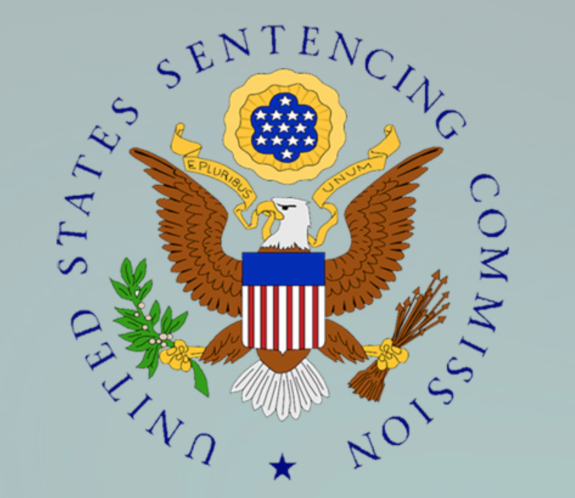Substantial Assistance, 5K1.1 Motions, and Rule 35 Motions
Posted by David C. Hardy on July 17, 2019

The federal substantial assistance process can lead to a reduction in sentence.
What Is Substantial Assistance?
“Substantial assistance” is a term that is often heard in the media when federal criminal cases of public interest are in the news.

In the 1990 movie GoodFellas, Henry Hill provided substantial assistance to the Government.
Substantial assistance is a process by which a federal criminal defendant helps the government to investigate and prosecute crimes committed by persons other than the defendant.
A defendant can provide substantial assistance in a variety of ways. For example, a defendant might provide information to the Government regarding a person that has been committing crimes, which then leads to the arrest and prosecution of that person. In some cases, substantial assistance can mean that a defendant actually goes to court and testifies at a trial or hearing against his coconspirators. If you have ever seen the 1990 movie “GoodFellas,” the character Henry Hill provided substantial assistance to the Government when he testified against the organized crime bosses for whom he had worked. In return, Henry Hill avoided prison.
Why Would a Federal Criminal Defendant Decide to Cooperate with the Government and Provide Substantial Assistance?
Typically, the reason a federal criminal defendant would cooperate with the Government is to get a shorter prison sentence or to serve no prison sentence at all.
The Government knows that sometimes, in order to convict the organizers and leaders of criminal organizations, the most useful witnesses are other members of that same criminal organization. Therefore, in order to convict the leaders of a criminal organization, the Government will frequently make deals with lower members of the organization. Essentially, the deal is that if a defendant cooperates against the leaders of the criminal organization, then the defendant’s own punishment will be reduced.
Normally, if a defendant wants to cooperate with the Government, the defendant will sign a federal plea agreement, which will explain the terms of the substantial assistance process.
What is a §5K1.1 Motion?
Federal district court judges use the United States Sentencing Guidelines to help them to decide the appropriate sentence to give a defendant. In the sentencing guidelines, there is a section called 5K1.1.

The requirements of the §5K1.1 are set out in the United States Sentencing Guidelines.
The 5K1.1 Motion section states that if a defendant has provided substantial assistance in the investigation or prosecution of another person who has committed a crime, the judge can take that substantial assistance into consideration at sentencing and impose less punishment upon the defendant. Further, if the 5K1.1 motion cites a law known as 18 U.S.C. 3553(e), then the judge can impose a sentence below any applicable minimum mandatory sentence.
What is a Rule 35 Motion?
A Rule 35 Motion is very similar to a 5K1.1 motion, with two key differences. First, a Rule 35 Motion is made after a person has been sentenced. In fact, sometimes a Rule 35 Motion is made several years after a defendant has been sentenced to prison. Second, with a Rule 35 Motion, a federal judge always has the power to sentence a defendant below any minimum mandatory sentence, regardless of whether or not the prosecutor approves.
To understand Rule 35 Motions, it’s helpful to consider an example. Let’s say that a defendant is originally sentenced to 10 years of prison for a drug offense, but that while in prison, the Defendant helps the FBI to investigate a drug trafficking organization by providing information about the leaders of the organization. Eventually, the Government prosecutes the drug traffickers, and they plead guilty in federal court. Then, the Government files a Rule 35 Motion on behalf of the defendant that provided substantial assistance, and the judge reduces the defendant’s sentence by several years.
Who Decides Whether or Not a Defendant will get a 5K1.1 motion or a Rule 35 motion?
Only the Government (also known as the federal prosecutor) can file a 5K1.1 motion or a Rule 35 motion.
Who Decides How Much Credit a Defendant Will Get for providing substantial assistance?
Only a federal district court judge can decide how much credit a defendant should get for his or her substantial assistance.
How Does a Federal Judge Determine How Much Credit to Give for Substantial Assistance?
When deciding how much credit to give a defendant for his or her substantial assistance to the Government, the judge will consider these factors:
The significance and usefulness of the defendant’s assistance, taking into consideration the government’s evaluation of the assistance rendered The truthfulness, completeness, and reliability of any information or testimony provided by the defendant; The nature and extent of the defendant’s assistance; Any injury suffered, or any danger or risk of injury to the defendant or his family resulting from his assistance; The timeliness of the defendant’s assistance.
Substantial Assistance and Your Federal Criminal Defense Attorney
If you or a loved one is considering providing substantial assistance to the Government in a federal criminal case, your best option is to work with an experienced federal criminal defense attorney.
A federal criminal defense attorney can work to maximize any possible sentence reduction for a defendant, as well as protect a defendant’s rights and interests. Further, sometimes the Government may agree that a defendant should receive credit for his or her substantial assistance, but the defendant may believe that he or she deserves more credit than the Government is willing to recommend to the judge. In cases like these, a federal criminal defense attorney can present arguments to the judge that a defendant’s reduction in the sentence should be greater than the government has requested. After hearing the arguments from both the Government and the defense attorney, the judge makes the decision on whether to reduce the defendant’s sentence and by how much.
Posted in Federal Criminal Defense

David C. Hardy
David C. Hardy is a criminal defense attorney with offices in Tampa, Florida. He is a former prosecutor that is Board Certified by the Florida Bar and The National Board of Trial advocacy as an expert in criminal trial law. He practices in the areas of federal criminal defense, Florida criminal defense, and Florida DUI defense.
